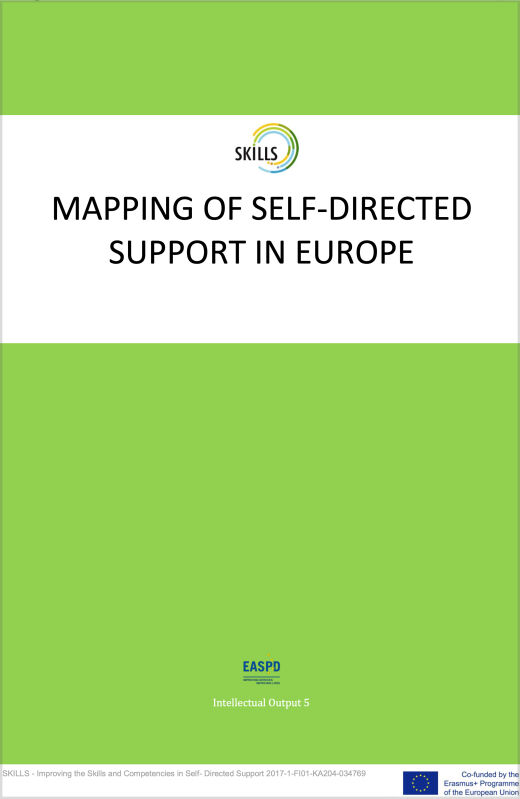A survey of Self-Directed Support systems in Europe in 2019 produced by the SKILLS project.
Author: Asel Kadyrbaeva
Systems of Self-Directed Support have slowly been developing across Europe as an alternative to the funding and organising of Long Term Care and Support. This report was created by the SKILLS project, now called the SDS Network, during the first phase of its work.
Self-directed support (SDS) is a system to organise the help people need so the person has as much control as possible. It aims to improve the lives of people with social care needs by empowering them to be equal partners in decisions about their care and support. For example: SDS allows people to choose how their support is provided and gives them as much control as they want of their personal budget.
Findings presented in this report are based on the data collected via an online survey of experts in the field of disability rights and services as well as desk research of relevant resources. There were 47 eligible responses from 24 European countries.
SKILLS is an Erasmus+ project (now called the SDS Network) that aims to enable the full citizenship of persons with disabilities by improving skills and competencies of different stakeholders in self-directed support. The project addresses the need to explore and define what systems of self-directed support are in place in different countries and how they can best support individuals with disabilities in exercising choice about their lives.
Read and download the free pdf in your browser, link below.


The publisher is EASPD. Mapping of Self-Directed Support in Europe © EASPD 2019.
Individual Service Funds, Personalised Support, Self-Directed Support, Europe, Paper